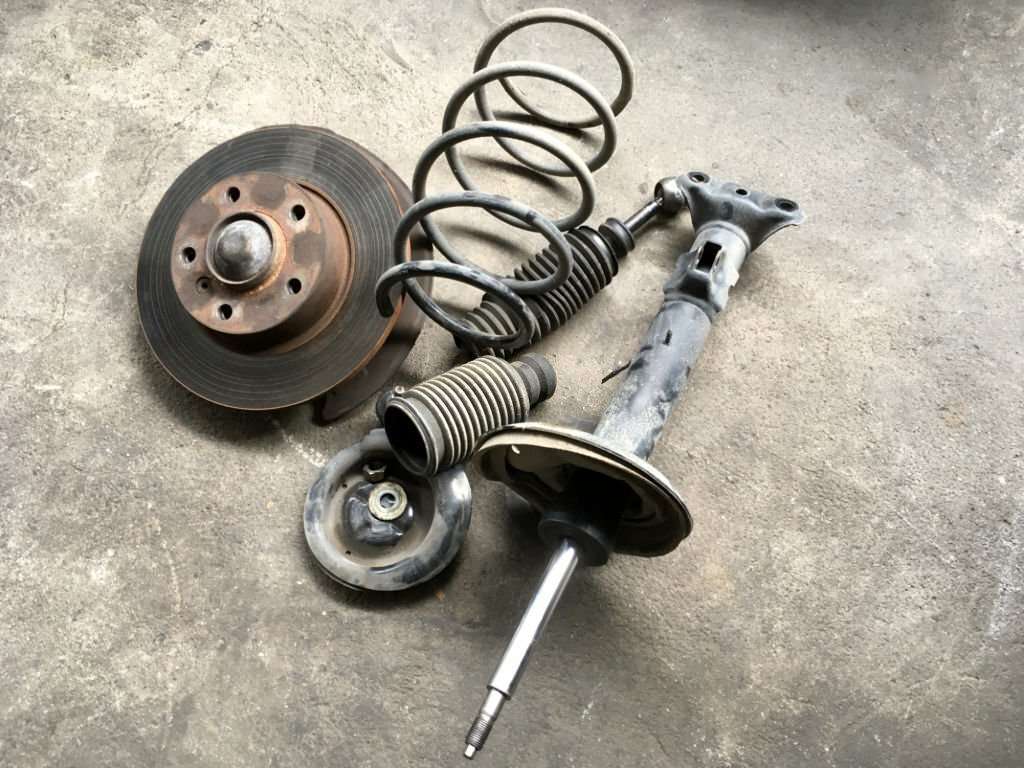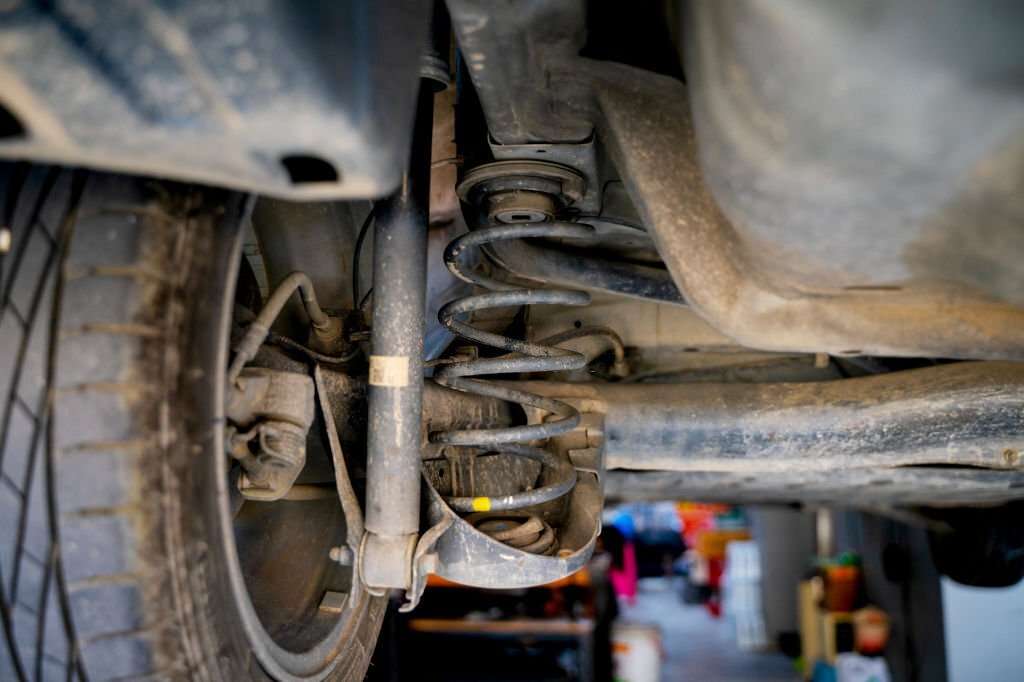While driving through the desert, you may notice that your car shakes as you hit a bump. This is because your car is vibrating, and it can cause a lot of damage if you don’t know why. So, what causes a car to vibrate? And why does it happen?
Jump to
Can Bad Shocks Cause Vibration?
Yes, bad shocks can cause a car to vibrate. However, you need to understand how shocks work before you can identify the cause of vibration.
How do shocks work in a car?
An automobile’s suspension system relies on shock absorbers to keep your tires connected to the road by reducing the impact of bumps in the road. As a result, hydraulic pressure cushions bumps and absorbs road vibrations.
Let us understand, how it works?
- By converting the kinetic energy of the springs into heat energy, shock absorbers dampen their movement. As a result, hydraulic fluid is created.
- When your vehicle’s suspension moves, a piston travels through the oil-filled cylinders. During up-and-down movements of the piston, tiny holes in the piston head allow fluid to enter.
- A small amount of fluid is used every time the piston moves, which slows down the suspension’s movement and dampens the spring’s compression and rebound.
- Moreover, they are velocity-sensitive and will only absorb movement when the vehicle is moving. So the faster the springs are moving, the more resistance the shock absorber provides.
What are the causes of bad shocks?
There are a number of things that can cause shocks to feel bad. Let’s check out the most common causes:
Improper wheel alignment
Bad shock absorbers are usually caused by improper wheel alignment and it also causes a lot of other suspension-related problems like premature tire wear, poor gas mileage and it even can be dangerous because it can cause your vehicle to pull to one side.
Fuel not burning completely
The fuel that is not burned completely in the car will cause black smoke to come out of the exhaust pipe. The unburned fuel will also cause damage to the engine. Shock absorbers dampen the energy caused by bumps and potholes on the roads so if fuel does not burn properly then it can cause shocks to feel bad as it.
A weak spring in the shock absorber
Spring provides a cushion between the body and the wheel to avoid the jarring impact that would otherwise occur. If the shock absorber springs are weak, the shocks will not work properly, and the car will bounce, causing discomfort for the driver and passengers.

How to check your shocks and what are some warning signs that they’re going bad?
When you drive over a bump or rough road, your car vibrates. You should definitely have your shocks checked by a mechanic if you notice that they are strong or that the shock absorber is not working properly. First of all, you need to check some points by yourself to see if your shock absorbers are going bad, such as:
Speed instability on highway
If you are driving on the highway and feel that your car is vibrating more than normal, it is a sign that the shocks are going bad. It is pretty much dangerous because you are driving at high speed and you will not be able to stop the car in time if you hit something.
Excessive tire bounce
Bounce is a very common problem with shocks. If your car is bouncing frequently when you are driving over bumps and on uneven roads, it is a sign that the shock absorber is not working well.
During the hard braking, front ends dive more
If your car’s front dives more when you use a hard brake then it is the symptom that the shock absorber is not in good form, so you have to immediately change it.
Leakage of hydraulic fluid
During the running of the vehicle, fluid is introduced into the piston head through a tiny hole in the shock absorber. If the fluid is not working properly it may cause shocks. You must therefore observe leaks.
When turning, the vehicle leans to one side
It happens when your shock absorber does not work properly because it is not absorbing the energy of the movement of the wheels, it can cause accidents so you have to be careful and notice this sign.
Conclusion!
In conclusion, we conclude that it is not the shock itself that causes the vibration, but the way in which it is experienced. This means that it is possible to reduce the vibration by changing the way in which the shock is perceived.
However, it is very important to understand that there is no way to eliminate the vibration completely. We must accept that it is part of the human condition.

My name is Tom Harris, founder of this blog. I’m a mechanical engineer with 20 years of experience in the automotive industry. I’m here to help you with your vehicle’s problems, easy fixes and share my insights and experience so that you can enjoy your rides more.

